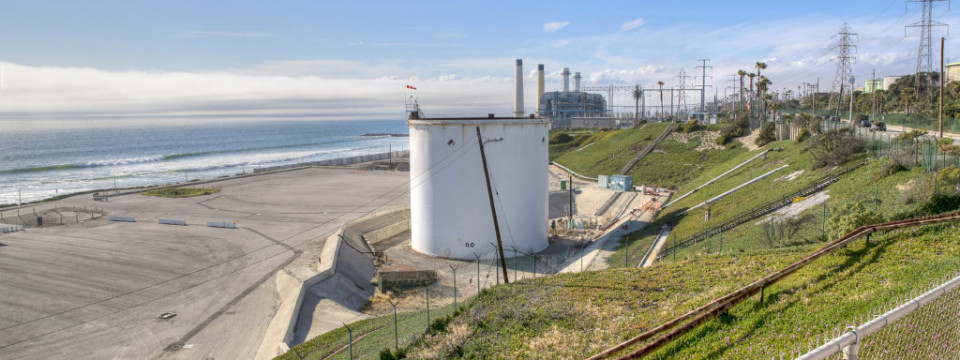
Culver City residents and other engaged community members convened at the Veterans Memorial Building on May 17 for an enlightening community discussion on the future of LA’s most precious resource: water. The Smarter Water Town Hall, which took over a regular meeting of the West LA Group of the Sierra Club Angeles Chapter, was organized by a coalition of environmental groups in response to West Basin Municipal Water District’s proposed ocean desalination plant along the coast.
Los Angeles Waterkeeper (LAW), Heal the Bay, Surfrider Foundation (South Bay Chapter) and Desal Response Group have come together to campaign for smarter water management in LA County. The coalition is fighting for cities to prioritize environmentally friendly, cost-effective water solutions, including stormwater capture and wastewater recycling, rather than ocean desalination.
Charming Evelyn, Chair of the Water Committee for the Sierra Club Angeles Chapter, welcomed nearly 100 community members to the town hall and emphasized the Sierra Club’s opposition to the proposed desalination plant.
The expert panel then delved into the potential environmental and economic impacts of the proposed desalination project and highlighted more sustainable local water alternatives.
“Ocean desalination, simply put, is the most expensive, energy-intensive and environmentally harmful option to enhance our local water supplies,” explained LAW Executive Director Bruce Reznik. “The energy required to power West Basin’s proposed 20 million gallon a day desalination plant would contribute tens of thousands of metric tons of carbon to the atmosphere every year, at a time when we have to be doing everything in our power to reduce our carbon footprint.”
Liz Crosson, Water Policy Advisor in LA Mayor Eric Garcetti’s office, and Ted Johnson, Chief Hydrogeologist at the Water Replenishment District (WRD), discussed some of the options their agencies are taking to enhance local water supplies in a more environmentally-friendly and cost-effective manner, including water conservation and efficiency measures, stormwater capture and reuse, wastewater reclamation, and groundwater remediation. In fact, Mayor Garcetti’s Sustainable City pLAn calls for the City to reduce reliance on imported water by 50% over the next decade, while WRD plans to get off important water entirely through its Water Independence Now program…all without any water coming from ocean desalination.
Heal the Bay’s James Alamillo, a long-time Culver City resident, closed the panel by urging community members to stay engaged in the fight for LA’s water independence, advocating for a desalination as a last resort strategy.
The panel and live audience Q&A session was moderated by Culver City Councilmember and environmental champion Meghan Sahli-Wells, who touted the City’s just passed polystyrene ban and recent vote to increase stormwater fees to invest in green infrastructure in the City.
Culver City is one of 17 cities in the region that purchases water from West Basin, which expects to release its Draft Environmental Impact Report on the proposed desalination plant in the coming month or two. Attendees were encouraged by the environmental groups to express their opposition to the project directly to the West Basin Board of Directors, and ask Culver City to formally oppose the proposed project.

Communications Consultant Lola Dvorak supports CCKA’s strategic communications by helping waterkeepers tell their stories.



